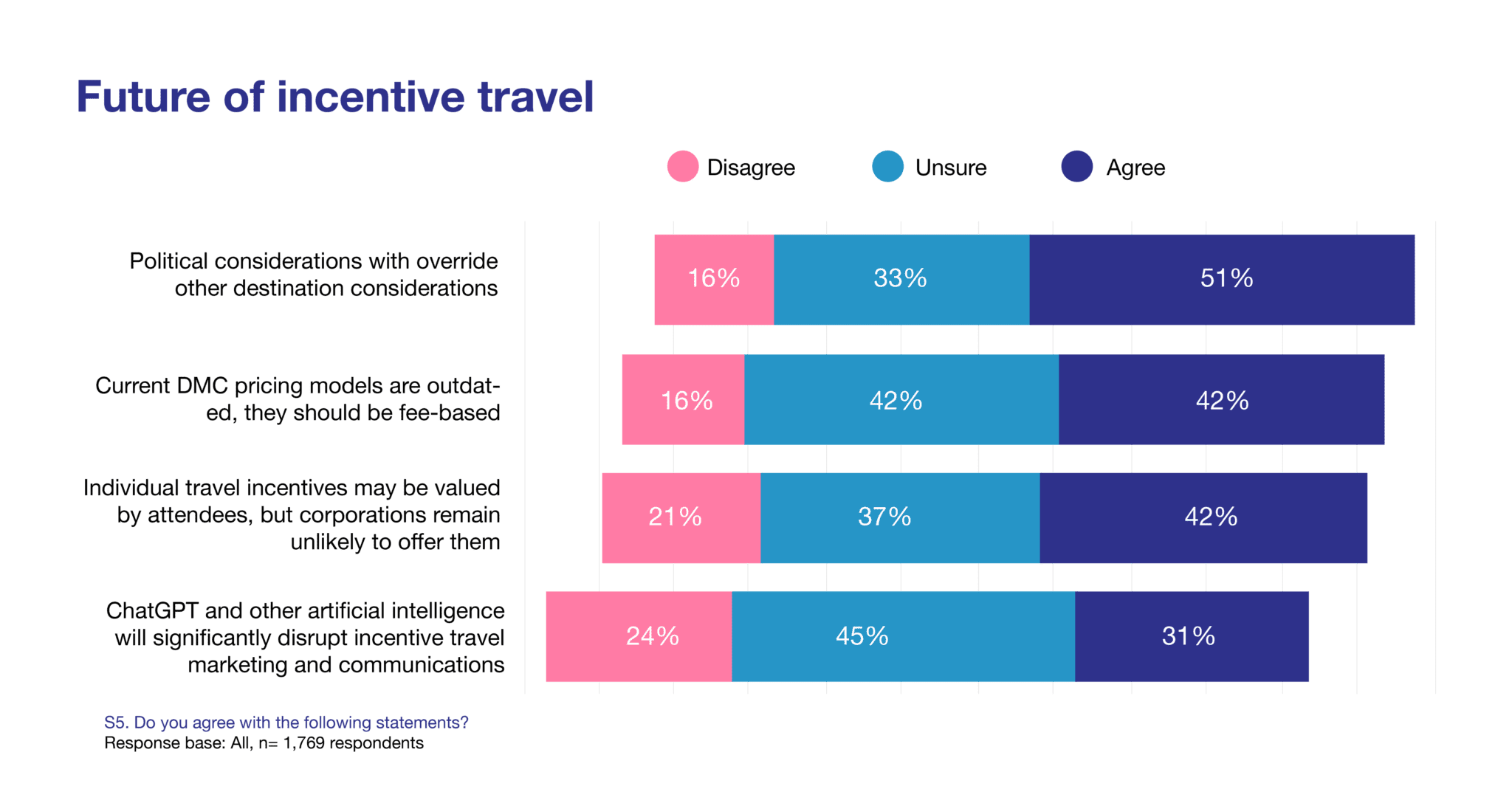Regular readers will know The Incentive Travel Index, a global study of the nature, purpose and direction of incentive travel, is conducted annually by SITE and the Incentive Research Foundation (IRF).
This year’s edition was launched at IMEX America (see IncentiveIndex.com for full presentation results) and included a number of quickfire questions around the status, future and role of incentive travel in the world of business. Some interesting takeaways emerge.
Status of ‘the business of incentive travel’
On the status of incentive travel, the vast majority of buyers believe that the skill set and capabilities of incentive travel professionals have NEVER been more valuable – great news for anyone who is a job seeker. However, they also said that planning and delivering incentive travel has become more challenging and higher costs/reduced availability are making it much more difficult to satisfy senior leadership.
As we move beyond the shadow of a global pandemic that drove so many out of our industry, we’re left with significantly reduced resources, both human and infrastructural, to service ongoing, pent up demand. In that context the capabilities of experienced incentive travel organisers have never been more valuable.
What remains to be seen for 2024 and beyond, is whether our industry can win back those emigrants now working for corporations or as freelance entrepreneurs, perhaps earning more, and with a better work/life balance?
Role of incentive travel
ITI 2023 highlights the importance of incentive travel in building engagement and company culture, with over 81% of global respondents stating that incentive travel has become EVEN more important now that workplace norms have been disrupted – a cue for us to set our own house in order?
And 66% of respondents agree that the role of incentive travel professionals is growing in importance with more of them being invited to take a seat at the table where decisions are made – particularly good news for the professionalism of our industry.
It’s certainly encouraging to note the overwhelming agreement around the growing importance – and obvious application – of incentive travel for changing workplace dynamics. The benefits of this new application, backed by stories and case studies, need to be front and centre as we build out the rationale and compelling reasons for using incentive travel.
Future of incentive travel
When it comes to the future of incentive travel and how various trends will play out, there’s an intriguing divergence of opinion.
When asked about AI and specifically ChatGPT, 24% disagree that it will disrupt MarCom in incentive travel while 31% believe that it will. That’s a net 7% who see AI as a disruptor! This figure is pretty consistent across the buyer/supplier sectors, coming in at 5% for DMCs, 8% for Corporates and 9% for Agencies. Clearly more agencies than DMCs have discovered the dark art of using ChatGPT to create RFP responses and craft itineraries!
Likewise, a net 26% of all incentive travel professionals now believe that DMC pricing models are outdated and should be fee based. Corporates and agencies are clearly of the impression that massive margins are hidden in the models currently deployed by DMCs.
Finally, as we face into more and more geo-political uncertainties, a net 35% of all incentive travel professionals believe that politics will play a role in destination selection in the future.
As with all studies of this type, the devil is in the detail and it’s really important to filter responses by sector, segment and geography – all of which you can do with the Tableau version of the study which is available for your delight and delectation at incentiveindex.com.







